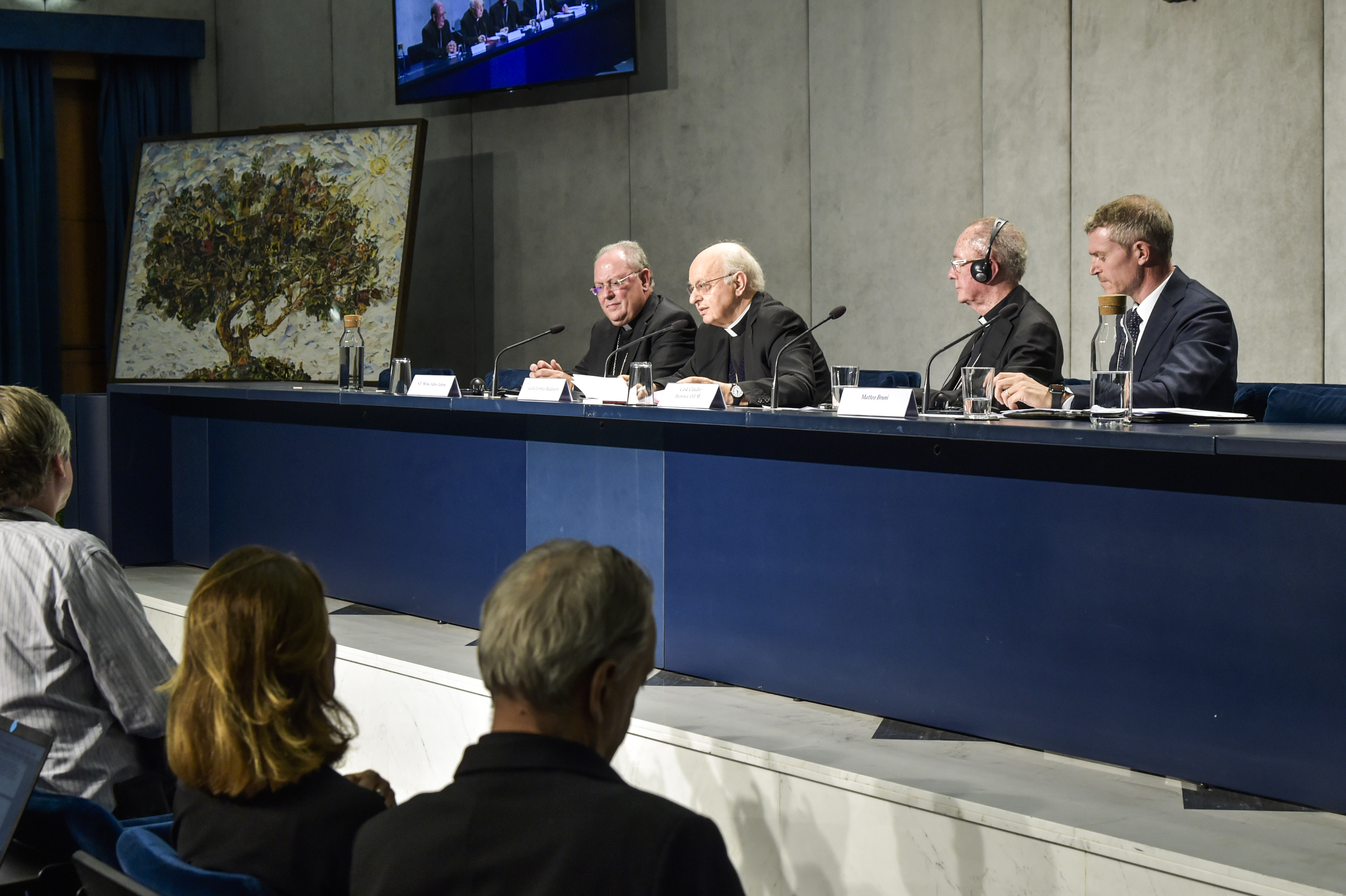#SYNODAMAZON
The Synod for the Pan-Amazon region is about to begin with the participation of 184 Synod Fathers in the Vatican from 6 to 27 October. “The Synod is centred on the evangelizing mission of the Church in Amazonia and on the environmental theme”, said Card. Lorenzo Baldisseri, Secretary General of the Synod of Bishops. “A true ecological approach always becomes a social approach,” said Card. Claudio Hummes, President of REPAM and general rapporteur. 35 women will take part in the meeting, the highest number so far for a Synod that also counts 17 representatives of indigenous peoples

184 Synod Fathers, 17 representatives of indigenous peoples, 35 women. These are some of the “numbers” of the Special Assembly of the Synod of Bishops on the theme “Amazonia: new paths for the Church and for an integral ecology”, to be held in the Vatican from 6 to 27 October. It was announced by Card. Lorenzo Baldisseri, Secretary General of the Synod of Bishops, during the press conference for the presentation of the Synod in the Holy See Press Office. On a total of 184 Synod Fathers, 113 are from the various ecclesiastical circumscriptions of the Pan-Amazon region. There are 13 heads of dicasteries of the Roman Curia. The total number also includes the members of the Pre-Synodal Council, 15 religious elected by the Union of Superiors General and 33 members appointed by the Pope, mainly from countries and geographical areas – such as the Congo river basin – marked by the same ecological problems constituting one of the two major ambits mentioned in the title of the Synod. The Synod is attended by 6 fraternal delegates, and 12 fraternal delegates. The number of participants is completed by 25 experts and 55 auditors – including 10 religious presented by the International Union of Superiors General (U.I.S.G.) – and 17 representatives of different original peoples and indigenous ethnic groups, including 9 women. The total number of women participating in the Synod is 35, the highest number so far for a Synod: 2 are special guests, 4 are experts (of whom 2 are nuns) and 29 auditors (of whom 18 are nuns).
“Green” initiatives. Ahead of the Synod for the Pan-Amazon region, the General Secretariat has promoted “a number of initiatives with the aim of limiting pollution and promoting environmental sustainability, so as to contribute, as far as possible, to safeguarding the common home.” The registration of participants is carried out directly online, said Card. Baldisseri, with considerable savings in printed paper, eliminating the costs of traditional mail. In order to limit the use of plastic the glasses to be used will be made of biodegradable material; the bag with the work material to be delivered to the Participants is made of natural fibre and the paper used for the documents to be distributed has the highest number of certifications regarding origin and processing chain. Attention is therefore
“focused on the evangelizing mission of the Church in the Amazon, with the proclamation of salvation in Jesus Christ at its centre, and on the ecological theme, given the importance that the Amazon territory has for the whole planet”, His Eminence said.
As stated in Laudato si “everything is connected” and “any behaviour, positive or negative, that is adopted with regard to the natural environment has inevitable consequences also in the socio-cultural and spiritual sphere of peoples and individuals.” “A true ecological approach always becomes a social approach; it must integrate questions of justice in debates on the environment, so as to hear both the cry of the earth and the cry of the poor”, said Card. Claudio Hummes, President of REPAM and general rapporteur of the Synod for the Pan-Amazon region.
Freedom of expression. “In the Church there is freedom of expression. Each one responds to his own conscience, to public opinion and of course to the Lord”, Cardinal Baldisseri thus replied to journalists’ questions on criticism of the Instrumentum laboris of the Synod for the Pan-Amazon region, which some even went so far as to label it as heresy. “It is not a pontifical document: it brings together the questions of the Amazon people”, he added: “This is the first time that bishops are listening to the Amazon people: it is necessary to listen and not to judge.”
“The Instrumentum laboris is not of the Synod but for the Synod”,
pointed out Cardinal Hummes: “It is the voice of the local Church, of the people, of history and of the earth. The Church has invited them to speak and they have spoken: if the Synod has done so, it is because the Synod seriously intends to listen. This is a synodal journey. We have listened to 80,000 people.”
Viri probati. “The absence of ordained ministers” is for Cardinal Hummes one of the pastoral emergencies of the region that the event in the Vatican will focus on. “70-80% of the communities within the Brazilian Amazon – said the cardinal in response to questions from journalists – have a scarcity of sacramental life, apart from baptism and marriage.” “There is a lack of ordained ministers who celebrate the Eucharist”, was the cardinal’s appeal, stating that it is necessary “to seek new ways of bringing the Eucharist into the life of our communities”. Answering a question on ecclesiastical celibacy, Baldisseri pointed out that this “theme is mentioned” in the Instrumentum laboris n. 129. On this as on the other points of the Instrumentum laboris, he added, “the Synod Fathers are free to discuss and make proposals.”
The role of women. “Women play a great, extraordinary role in the Amazon region. Women occupy a leading position in many communities and they are asking for their work to be recognized and institutionalized”, said Card. Hummes paying homage to the 35 women who will participate in the Synod for the Pan-Amazon region.